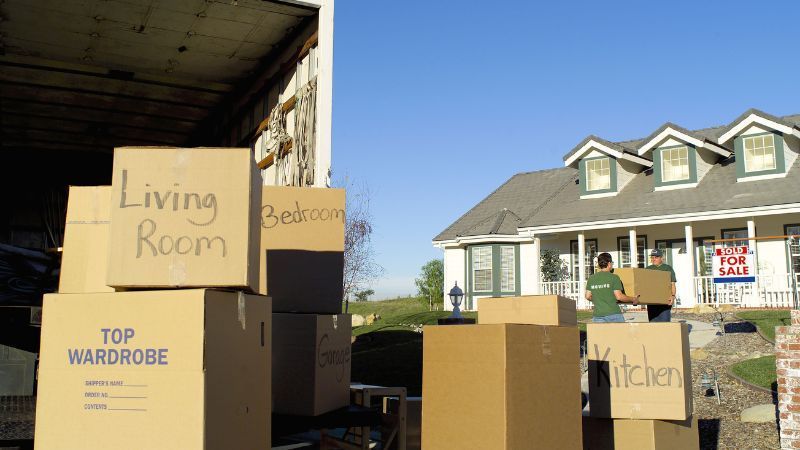Moving to Tulsa? Here's What to Do
If you're considering relocating, Tulsa, Oklahoma, should be on your radar. This vibrant city combines affordability, culture, and a friendly community, making it a wonderful place to call home.
Overview of Tulsa's Appeal
- Cost of Living Tulsa boasts a lower cost of living compared to many other cities. According to recent statistics, living in Tulsa can save you up to 20% compared to the national average. This means more money in your pocket for other priorities.
- Economic Growth With flourishing industries such as energy, aerospace, and health care, Tulsa's economy continues to grow. Tulsa was recently ranked as one of the top cities for job growth in the United States, particularly impressive for those seeking new career opportunities.
- Quality of Life Tulsa offers a high quality of life, with excellent schools, diverse dining options, and numerous recreational facilities. The city's parks and trails provide abundant green space, making it ideal for those who enjoy outdoor activities.
Key Attractions and Cultural Highlights
- Museums and Historical Sites Tulsa is home to several renowned museums such as the Phil brook Museum of Art and the Gilcrease Museum, which house extensive collections of art and historical artifacts.
- Dining and Nightlife The city’s diverse culinary scene caters to all tastes. From trendy eateries like Andolini's Pizzeria to upscale dining at Bull in the Alley, there's something for everyone. The Blue Dome District is a hub for nightlife, featuring numerous bars and live music venues.
- Outdoor Activities For outdoor enthusiasts, Tulsa offers the stunning Gathering Place, a 100-acre park recognized as one of the best in the country. Additionally, the Turkey Mountain Urban Wilderness Area provides miles of hiking and biking trails.
Preparing for Your Move
Start Off on the Right Foot
Preparing for a local move can feel overwhelming, but with the right steps, you can simplify the process. Here’s how to get started.
Researching Neighborhoods in Tulsa
Finding Your Ideal Community
Tulsa features diverse neighborhoods, each with its own unique charm. Here are some of the most popular areas:
- Downtown Tulsa Downtown is perfect for those who enjoy a bustling urban environment. It's known for its art deco architecture, vibrant arts scene, and numerous dining options.
- Midtown Midtown offers a mix of historic homes and trendy shops. It's great for families, thanks to its highly-rated schools and family-friendly amenities.
- South Tulsa Known for its suburban feel, South Tulsa includes well-maintained parks and excellent shopping centers. It's an ideal location for those looking for a quieter lifestyle.
- Brookside Brookside is a hip, walkable neighborhood filled with boutiques, restaurants, and nightlife. It's popular among young professionals and college students.
Factors to Consider
- Schools: Research the quality of schools if you have children.
- Amenities: Consider proximity to grocery stores, parks, and other amenities.
- Commute Times: Think about your daily commute to work or school.
Understanding Tulsa's Housing Market
Navigating Your Housing Options
Whether you’re renting or buying, understanding the housing market is crucial.
Renting vs Buying
- Renting: Offers flexibility without long-term commitments. Average rent for a two-bedroom apartment is around $900.
- Buying: Homeownership can be an investment. The median home price in Tulsa is approximately $150,000, much lower than the national average.
Average Costs
- Utilities: Food, transportation, and healthcare are also affordable compared to other cities.
- Finding a Reputable Realtor: A local realtor can offer valuable insights and help you find your ideal home.
Choosing the Right Moving Date
Timing is Everything
When planning your move, take these factors into account:
- Weather Considerations Tulsa experiences all four seasons. Summers can be hot, and winters may bring ice storms, so plan accordingly.
- Peak Moving Seasons The busiest moving times are late spring and summer. If possible, aim for an off-peak time for more flexible scheduling and potentially lower costs.
Planning the Logistics
Proper logistical planning can make a world of difference on moving day.
Creating a Moving Checklist
A checklist can help ensure you don’t miss any important tasks. Here’s a timeline to guide you:
8 Weeks Prior
- Hire a moving company like High IQ Moving located in Tulsa, OK.
- Start decluttering your home.
- Begin collecting packing supplies.
4 Weeks Prior
- Notify important parties of your move (utility companies, banks, etc.).
- Schedule disconnection and reconnection of utilities.
- Begin packing non-essential items.
2 Weeks Prior
- Confirm arrangements with your moving company.
- Pack important documents and valuables separately.
- Start cleaning your old home.
Moving Day
- Do a final walkthrough to ensure nothing is left behind.
- Coordinate with movers.
- Keep essentials (medications, important documents) handy.
Hiring a Moving Company
Choosing a reputable moving company can save you time and stress.
- Look for companies with good reviews and BBB accreditation.
- Ask for estimates and compare prices.
- Ensure they offer services that meet your needs, such as packing and storage.
Questions to Ask Your Movers
- Are you licensed and insured?
- What is your cancellation policy?
- Do you offer liability coverage for damaged items?
Essential Packing
Gathering the Right Tools
To pack effectively, you’ll need some key supplies:
Boxes
- Various sizes (small, medium, large)
- Specialty boxes for items like dishes and wardrobe
Packing Paper
- Ideal for wrapping fragile items
- Can be used as filler to prevent shifting
Bubble Wrap
- Offers extra protection for delicate items
- Great for wrapping glassware and electronics
Labels and Markers
- Clearly mark each box with its contents and destination room
- Use color-coded labels for easier sorting
Room-by-Room Packing
Taking a room-by-room approach can help keep packing manageable.
Kitchen
- Tips:
- Start with rarely used items.
- Label any essential food items for quick access.
- Common Items:
- Utensils (use rubber bands to keep sets together)
- Appliances (secure cords with zip ties)
- Dishes (use dish-pack boxes for extra protection)
Living Room
- Tips:
- Secure cables and remotes.
- Pack books and décor items carefully.
- Common Items:
- Electronics (use original packaging if available)
- Furniture (disassemble if possible)
- Artwork (wrap in bubble wrap and use specialty boxes)
Bedrooms
- Tips:
- Pack off-season clothing first.
- Use wardrobe boxes for hanging clothes.
- Common Items:
- Bedding (use vacuum-seal bags)
- Clothing (sort by season and type)
- Personal items (pack valuables separately)
Bathrooms
- Tips:
- Use smaller boxes.
- Seal liquids to prevent spills.
- Common Items:
- Toiletries (secure lids and pack in plastic bags)
- Towels and Linens (use as cushioning for other items)
- Medicines (keep a small bag of essentials for easy access)
Practical Tips for Moving Day
Stay Calm and Organized
Moving day can be hectic, but with the right strategies and moving services, you can keep things running smoothly.
Stay On Top of Tasks
Prepare a detailed schedule to help manage your time effectively.
Coordinating with Movers
- Confirm the arrival time and go over any last-minute instructions.
- Be available to direct movers and answer questions.
- Ensure pets and children are safely out of the way.
Last Minute Checks
- Do a final walkthrough of your old home.
- Check all rooms, closets, and storage areas.
- Make sure all windows and doors are locked.
Utilities and Services Transfer
- Make sure all utilities at your new home are set up and ready.
- Perform a final meter reading at your old home.
- Arrange for the disconnection of services after you leave.
Be Prepared for Anything
Even the best-laid plans can encounter bumps. Here’s how to handle common issues:
Dealing with Weather Changes
- Have tarps and plastic sheeting on hand to protect items from rain or snow.
- Wear appropriate clothing and have extra towels ready.
Addressing Last-Minute Packing
- Keep a few extra boxes and packing materials for unexpected items.
- Designate a "last-minute" box for essentials needed right up until moving day.
Handling Damaged Items
- Inspect items as they’re unloaded.
- Take photos of any damage and file a claim with your moving company if necessary.
- Have a basic toolkit available for quick repairs if needed.
Make Your New House Feel Like Home
After the move, it’s time to get settled and start enjoying your new surroundings.
Start Off Organized
Unpacking can be daunting, but these tips can help streamline the process.
Prioritizing Rooms
- Start with essentials like the kitchen and bedrooms.
- Set up furniture first to make space for unpacking boxes.
- Gradually move to less essential areas like the garage or basement.
Setting Up Essential Services
- Ensure all utilities are functioning properly.
- Set up the internet, cable, and other services as soon as possible.
Feel at Home in Your New Community
Get to know your new surroundings and meet the people who live nearby.
Introducing Yourself to Neighbors
- Knock on doors and introduce yourself.
- Attend neighborhood events or meetings.
- Join local social media groups or apps like Nextdoor to stay connected.
Exploring Local Amenities
- Visit nearby parks, shops, and restaurants.
- Take a walk or drive around to familiarize yourself with the area.
- Find the closest grocery stores, gas stations, and other important spots.
Take Care of Administrative Tasks
Get all your essential services set up and in order.
Utilities
- Set up accounts for electricity, gas, water, and waste management.
- Tulsa typically offers easy online forms for service transfers.
DMV
- Update your driver’s license and vehicle registration.
- Ensure you’re compliant with local vehicle regulations.
Voter Registration
- Register to vote in Tulsa County to participate in local elections.
- Update your address to ensure you receive the correct ballot.
Your Go-To Guide for Local Services and Support
Accessing the right resources can make your transition to Tulsa smoother and more enjoyable.
City Services and Utilities
Ensure all your essential services are in place:
Electricity Providers
- Public Service Company of Oklahoma: Primary electricity provider in Tulsa.
Gas Providers
- Oklahoma Natural Gas: Main gas utility for the Tulsa area.
Water Providers
- City of Tulsa Utilities: Manages water and wastewater services.
Waste Management and Recycling
- Tulsa Residential Trash & Recycling: Provides trash and recycling pickup schedules.
Tulsa Community Organizations
Avoiding Common Moving Mistakes
Avoid these typical pitfalls to ensure your move goes off without a hitch.
Overpacking
- Tip: Don’t overload boxes to avoid breakage and injury. Use smaller boxes for heavier items like books.
Keep Calm and Move On
Here’s how to stay composed throughout your move:
Staying Organized:
- Create a detailed moving checklist and stick to it. Keep essential documents in a dedicated, easily accessible folder.
Taking Breaks:
- Schedule regular breaks to rest and rehydrate. Moving is physically and mentally demanding, so take care of yourself.
Your New Beginning Awaits
Moving to Tulsa, OK, can be a rewarding experience, filled with new opportunities and adventures. Here’s a quick recap and some final encouragement as you embark on this journey.
Recap of Key Moving Tips
- Plan Ahead: Research neighborhoods, understand the housing market, and choose the right moving date.
- Stay Organized: Use checklists and start packing early.
- Hire Reliable Help: Consider professional movers like High IQ Moving for a hassle-free experience.
- Unpack Strategically: Prioritize essential rooms and services first.
- Get Involved: Explore local resources and community organizations.






